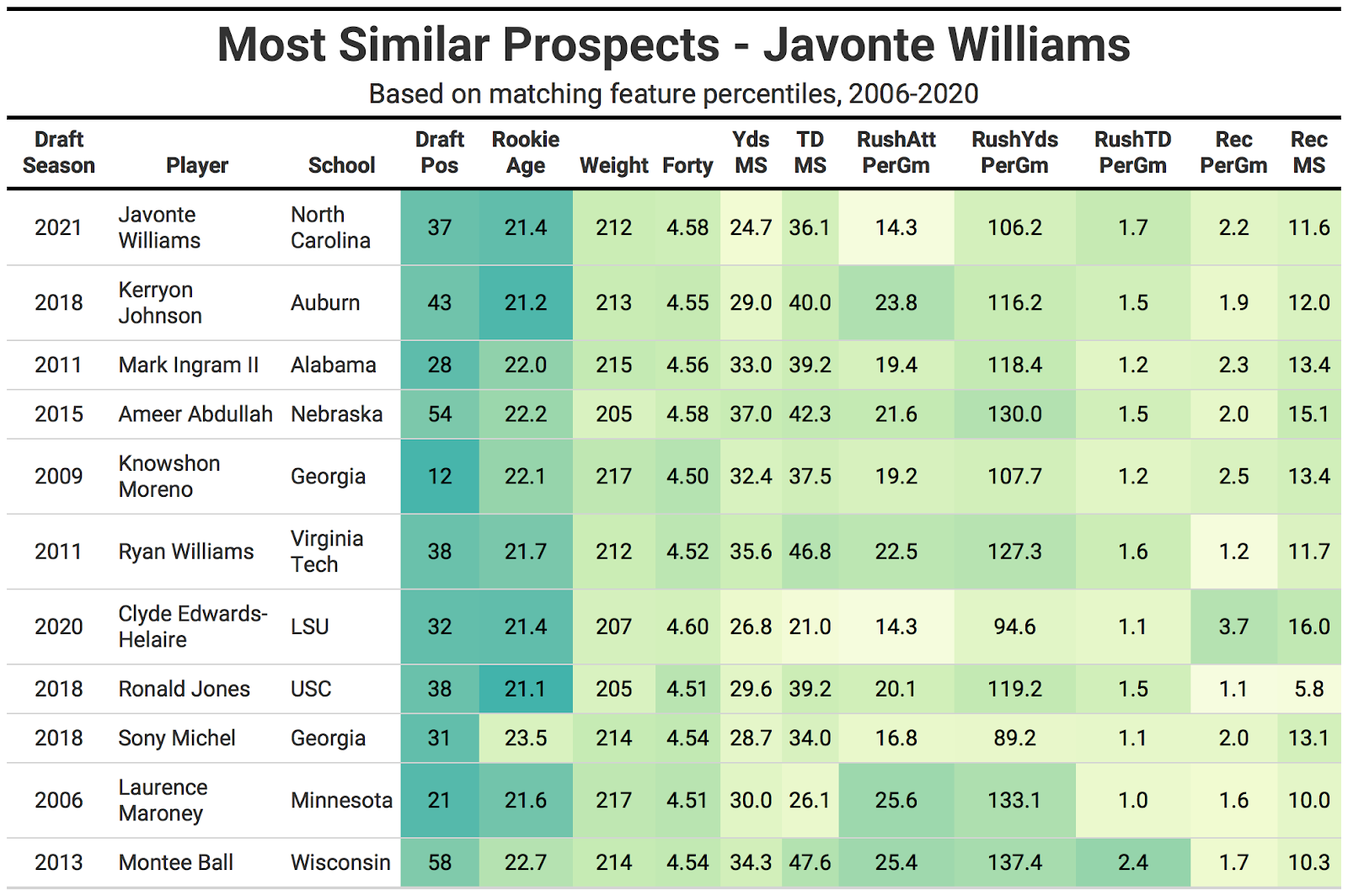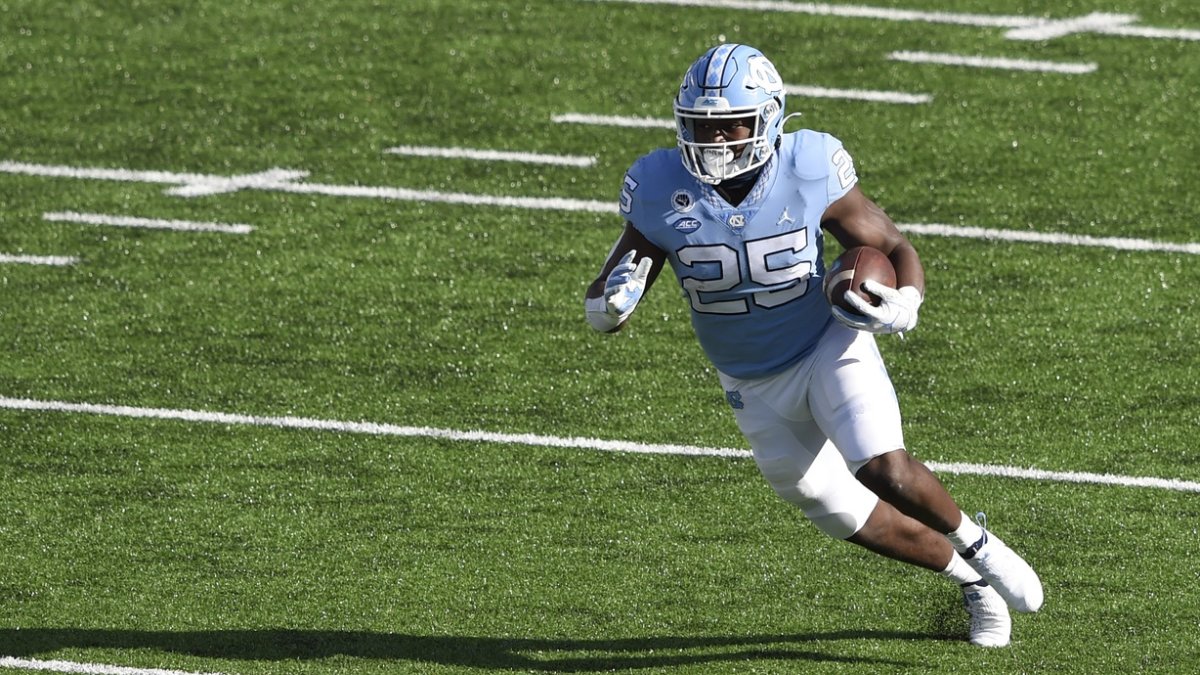Comparing current NFL draft prospects to those of years past is standard procedure in draft evaluation, though most comparisons are built on the memory recall and subjective opinion of the particular evaluator.
This will be the first in a series of articles comparing the 2021 draft prospects to prior years and picking out the most similar comps with a clearly delineated and quantifiable method.
PFF data scientist Eric Eager has done tremendous work building college-to-pro projections, which are built off the robust college data we’ve collected since 2014 and have been applied to exercises like building an “Analytics” Mock. In this analysis, I will use some of our advanced stats for comparison but primarily rely on traditional stats to go back further to compare the 2021 prospects to draft classes going back to 2006.
Without the NFL Scouting Combine this season, the important measurables like weight and 40-yard dash will be reported through the various pro days that will be taking place over the next few weeks.
View PFF's 2021 NFL Draft position rankings:
QB | RB | WR | TE | T | iOL | DI | EDGE | LB | CB | S
METHODOLOGY
The comps below were derived from a two-step process. First, I converted all the most statistically relevant stats and measurables to percentiles based on the thousands of prospects who have entered the NFL since 2006 at each position. Then, I filtered the total universe of past prospects by those who had draft positions, weight and 40 times within a 10th percentile in either direction of North Carolina RB Javonte Williams. For undrafted players, I assigned a numerical draft position of 300.
The rest of the matching features were transformed by principal component analysis (PCA). I found the closest statistically comparable players by the euclidean distance between the players' principle components, listed in the top 10 below.
The metrics for PCA are: rushing attempts per game, rushing yards per game, rushing touchdowns per game, receptions per game and market share of team receptions. All of these data points come from the prospect’s best collegiate season. I also matched the prospect’s market share of total team yards and touchdowns to past draft prospects.
For Williams' draft position, I’m using an estimate based on the mock data collected at GrindingTheMocks.com. For the weight and 40 time, I’m using the numbers from his pro day, with a 0.03-second penalty added to the 40 time to reflect the uncertainty of pro-day timed measurements.
Most comparable players
The most surprising result from Williams’ pro day was his weight at 212 pounds, as he was listed at 220 pounds on the North Carolina website. The eight-pound difference might not seem hugely influential, but it moves the set of comps down to exclude prospects above 220 pounds and includes some below 210 pounds.
Williams’ measured speed was mediocre, as he clocked in at 4.55 seconds on the 40-yard dash (45th percentile). His other drills produced more positive results, with 36 inches on the vertical (68th), 10-foot-3 on the broad jump (78th) and 6.97 seconds on the three-cone drill (64th).
Williams is alongside Najee Harris and Travis Etienne as the “top tier” of running back prospects who we expect to be drafted within the first two rounds. Unlike the other two, Williams is a younger prospect declaring after his true junior season and will be only 21 when the 2021 NFL season starts.

The concern with Williams is his status throughout college as a committee back, never logging more than 14.3 carries per game in any season without outsized usage in the passing game.
The context for Williams’ lower usage is playing alongside another strong running back prospect in Michael Carter. Carter will be drafted this season and was the established, older back in the committee. You’d like to see Williams dominate a backfield as evidence he can do it at the next level, but it isn’t a necessary condition.
Exclusive content for premium subscribers

WANT TO KEEP READING?
Dominate Fantasy Football & Betting with AI-Powered Data & Tools Trusted By All 32 Teams
Already have a subscription? Log in




 © 2025 PFF - all rights reserved.
© 2025 PFF - all rights reserved.